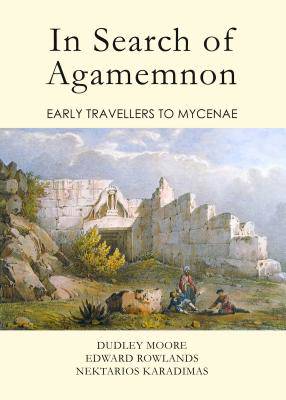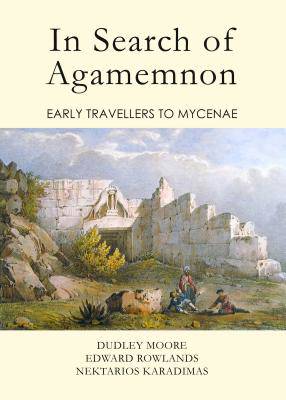
- Afhalen na 1 uur in een winkel met voorraad
- Gratis thuislevering in België vanaf € 30
- Ruim aanbod met 7 miljoen producten
- Afhalen na 1 uur in een winkel met voorraad
- Gratis thuislevering in België vanaf € 30
- Ruim aanbod met 7 miljoen producten
Zoeken
In Search of Agamemnon
Early Travellers to Mycenae
Nektarios Karadimas, Dudley Moore, Edward Rowlands
Hardcover | Engels
€ 55,95
+ 111 punten
Omschrijving
Although many books focus on the fascinating story of Heinrich Schliemann, little has been written on Mycenae before his excavations. This book, therefore, fills this gap. It looks at the English-speaking pioneers who visited the citadel at Mycenae before Schliemann, providing additional biographic references in the footnotes (and bibliography and associated sources). The book's primary purpose is to bring back to life the thoughts of these pioneers on Mycenae. It is also a reflection on dating theories of the site during the nineteenth century. At that time, the general consensus concerning the beginning of the 'Greek world' was the classical civilisation of the fifth century BC. This was not the view of many of these travellers.The ancients too had a fascination with Mycenae. The Homeric tales of Agamemnon, King of Mycenae, led to popular sixth and fifth century BC plays from the likes of Aeschylus, Sophocles and Euripides. But what did these ancient writers and later travellers, such as Pausanias, actually see?Finally, there is a need to be reminded of some of the 'pioneer' travellers to Mycenae and their descriptions of the Lion Gate citadel and the 'Treasury of Atreus', as they are of particular historical interest. Not only that, but some of these observations are pure poetry and a delight to read.
Specificaties
Betrokkenen
- Auteur(s):
- Uitgeverij:
Inhoud
- Aantal bladzijden:
- 191
- Taal:
- Engels
Eigenschappen
- Productcode (EAN):
- 9781443856218
- Verschijningsdatum:
- 15/04/2014
- Uitvoering:
- Hardcover
- Formaat:
- Genaaid
- Afmetingen:
- 150 mm x 208 mm
- Gewicht:
- 417 g

Alleen bij Standaard Boekhandel
+ 111 punten op je klantenkaart van Standaard Boekhandel
Beoordelingen
We publiceren alleen reviews die voldoen aan de voorwaarden voor reviews. Bekijk onze voorwaarden voor reviews.








